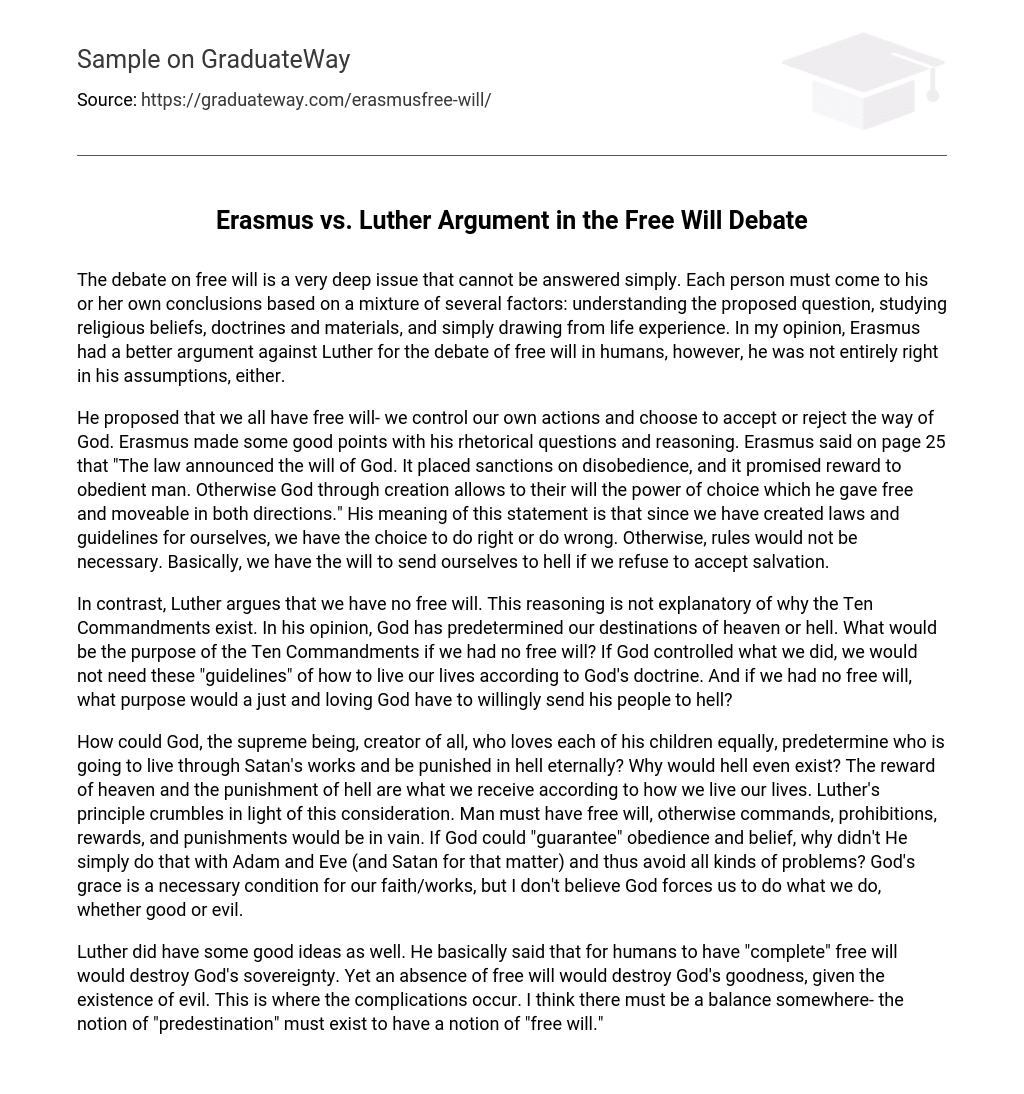The complexity and difficulty in settling the issue of free will require individuals to personally consider multiple factors. These include understanding the question, examining religious beliefs and texts, and reflecting on personal experiences. From my perspective, Erasmus provided a more persuasive argument against Luther’s stance on human free will. Nevertheless, it is important to acknowledge that Erasmus’ assumptions were not entirely accurate.
Erasmus proposes that individuals possess the freedom to exercise their own will and make choices regarding accepting or rejecting God’s teachings. He presents compelling arguments and thought-provoking questions. On page 25, Erasmus explains that the law serves as a means for God to communicate His intentions by establishing consequences for disobedience and rewards for obedience. Additionally, through creation, God grants humans unrestricted freedom of choice in determining their desired path. Essentially, Erasmus suggests that just as we set laws and guidelines for ourselves, we also have the power to make righteous or wrongful decisions. In other words, if we reject salvation, we have the autonomy to condemn ourselves to damnation.
Luther argues that free will does not exist, failing to consider the significance of the Ten Commandments. According to Luther, God has already determined our destinies – heaven or hell. This raises questions about the purpose of the Commandments. If God controls our actions, then these “guidelines” for living according to His teachings become unnecessary. Moreover, it is difficult to understand why a just and compassionate God would deliberately condemn His followers to hell if we lacked free will.
How can God, the supreme being and creator of all, who loves each of his children equally, predestine some to experience the works of Satan and eternal punishment in hell? Why does hell even exist? Our actions determine the rewards of heaven and punishments of hell. Luther’s principle falls apart when considering this. Man must have free will, otherwise commands, prohibitions, rewards, and punishments would be meaningless. If God could “guarantee” obedience and belief, why didn’t He do that with Adam and Eve (and Satan)? It would have prevented countless problems. While God’s grace is necessary for our faith and works, I believe He does not force us to choose between good and evil.
Luther also had positive ideas. His belief was that if humans had unlimited free will, it would undermine God’s sovereignty. However, lacking free will would undermine God’s goodness due to the presence of evil. This creates complexity. I believe there should be a middle ground where the concept of “predestination” coexists with the concept of “free will.”





